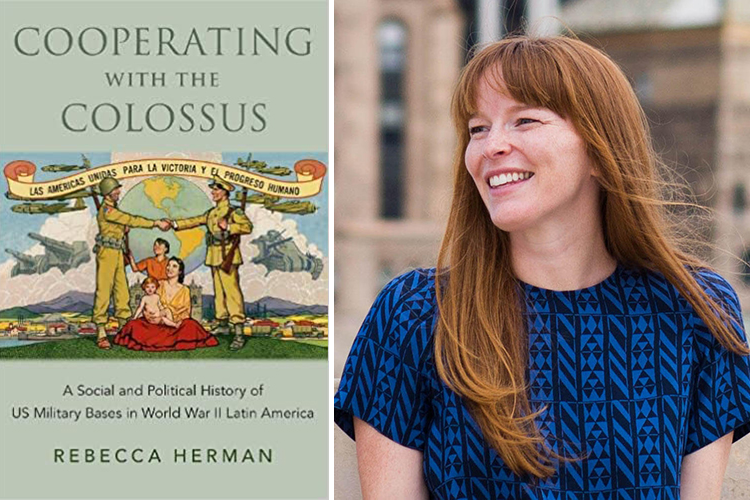Berkeley Talks: U.S. Military Bases in World War II Latin America
Subscribe to Berkeley Talks, a Berkeley News podcast that features lectures and conversations at UC Berkeley.

In Berkeley Talks episode 152, UC Berkeley history professor Rebecca Herman discusses her new book, Cooperating with the Colossus: A Social and Political History of U.S. Military Bases in World War II Latin America. She’s joined by Margaret Chowning, professor and Sonne Chair in Latin American History at Berkeley, and Kyle Jackson, a Berkeley Ph.D. candidate in history and a transnational historian of the Americas.
“The first response I often get when I say, “Oh, I write about U.S. bases in World War II Latin America,” is, “The U.S. had bases in World War II Latin America?” says Herman. “Latin America is not the first region that comes to mind when you think of World War II. It’s probably the last region that comes to mind.”
But, she says, the U.S. had a lot of defense sites across Latin America.
When we think about U.S.-Latin America relations, she says, most of us probably think “intervention” rather than “cooperation” because the U.S. has a long history of intervening in Latin America militarily, economically and politically as part of a broader project to assert and maintain U.S. hegemony in the region that dates back to the 19th century. It’s this history of intervention that earns the United States the nickname the “Colossus of the North.”
But the period during WWII, she says, stands out in this larger history of U.S.-Latin American relations as an atypical high point.
“Typically, when the war comes up, the remarkable thing is that it was this moment where almost every country in the Americas banded together, united around the war effort,” Herman says.
“So, when I talk about cooperating with the colossus,” she continues, “I’m thinking in this sort of critical way about how people in the region during the Second World War tried to make the most of the United States’ sudden attention to the region and willingness to share resources with the region and willingness to send weapons to the region, while also trying to mitigate U.S. overreach and to grapple with the real significant asymmetries of power that structured that cooperative relationship.”
This Sept. 15 conversation was sponsored by Berkeley’s Center for Latin American Studies. It was the second event in the center’s series, Novedades/Lançamentos: New Scholarship @ Berkeley, which highlights new work from Berkeley scholars about Latin America and the Caribbean by inviting a faculty member and a graduate student to discuss the recent work of a Berkeley faculty member.
